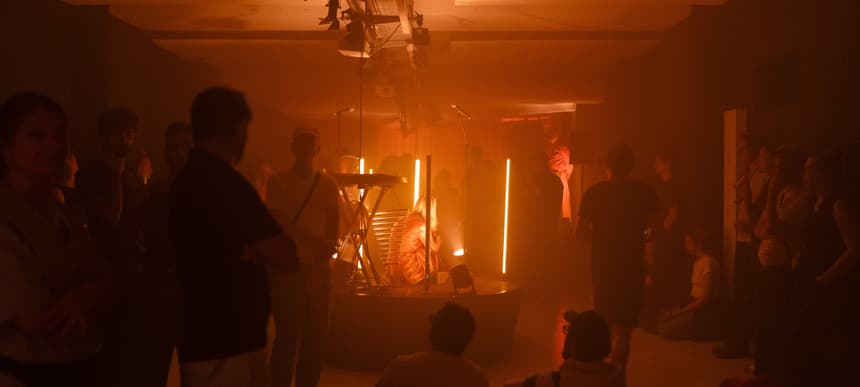
Pop-Kultur Festival 2025 Was A Celebration Of Underground Culture
Last week I went to Pop-Kultur Festival in Berlin. I joined workshops with some of my heroes and learned how to turn shitty phone recordings into cool songs. I talked to artists I met along the way, I dropped my demos at the label market, I danced in an underground tunnel-system to electro-pop, listened to all kinds of genres and cried to post-punk.
MONDAY
Monday starts with workshops of the Newcomer Support Program, taking place at Silent Green, an old crematorium that has been turned into a venue. Some plants grow on the concrete walls, making it a beautiful place to spend time, despite the spooky history of the location. In the welcome talk, organiser, Yeşim Duman, says: “When you’re carving out your own space in the music industry, there is not one way to do it.” Everyone I meet along the way is on their own personal mission of expression, creating their own little unique universe to move in and create in, merging with other galaxies along the way. The first workshops are about self-managing for young artists. German singer-songwriter Johanna Amelie shares success and fail stories about her path.
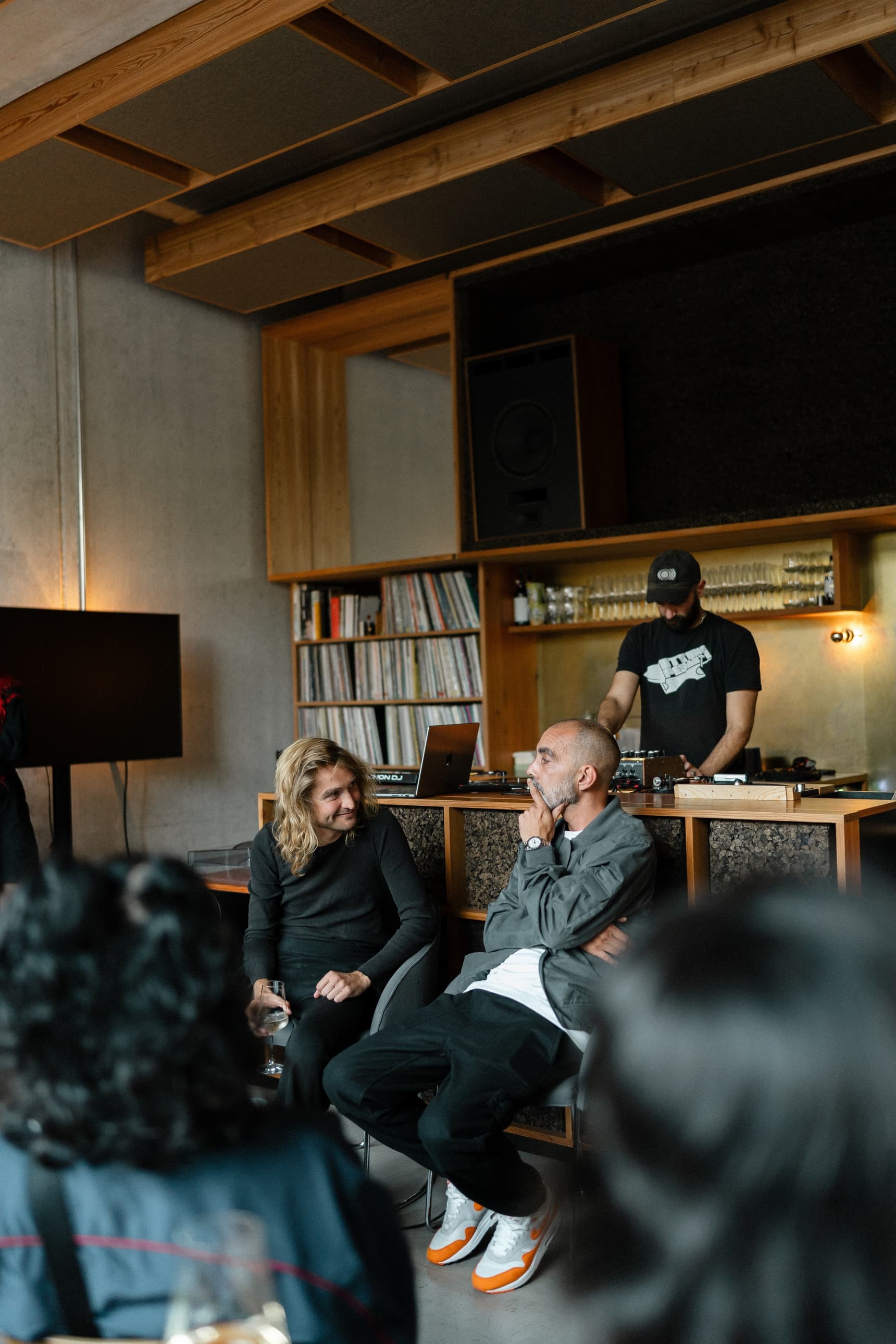
TUESDAY
Tuesday starts with a workshop by Ralph Heidel - a German composer, producer, arranger, and multi-instrumentalist - about “creating a musical universe.” Out of phone recordings he creates a song; out of a walk in the woods, he creates a unique wood-sound library that you might find in all kinds of famous German hip hop he produced. He looks a bit like a fairy-wizard character and radiates such softness and talent that it’s contagious. His workshop leaves the whole room stunned; everyone has that glimmer of inspiration in their eyes afterwards. We all exchange little shy smiles.
More workshops follow. I choose “Your Rights, Your Money” by Mariama Jalloh, a musician herself who co-founded a small indie label. She teaches us about claiming your song rights and protecting them. It’s great to get some help managing the numbers. Some talks follow on how to start a career in another country, social media and pop, and how to get a slot at a showcase. The newcomer program comes to an end. Heidel talks in the Migas listening bar next door with producer Bazzazian about how to catch a magical moment in music — that spark of inspiration before it flies away. Animated conversations happen everywhere in the room; wine glasses and beer bottles meet insecurities and reservations. The “Sonic Crossing” program is dedicated to emerging artists of the South Caucasus. Artists from the region are invited to showcase their work. By now the cool actors of the German and international pop scene loosen up a bit, sparks fly, there is dancing and music as the night goes by.
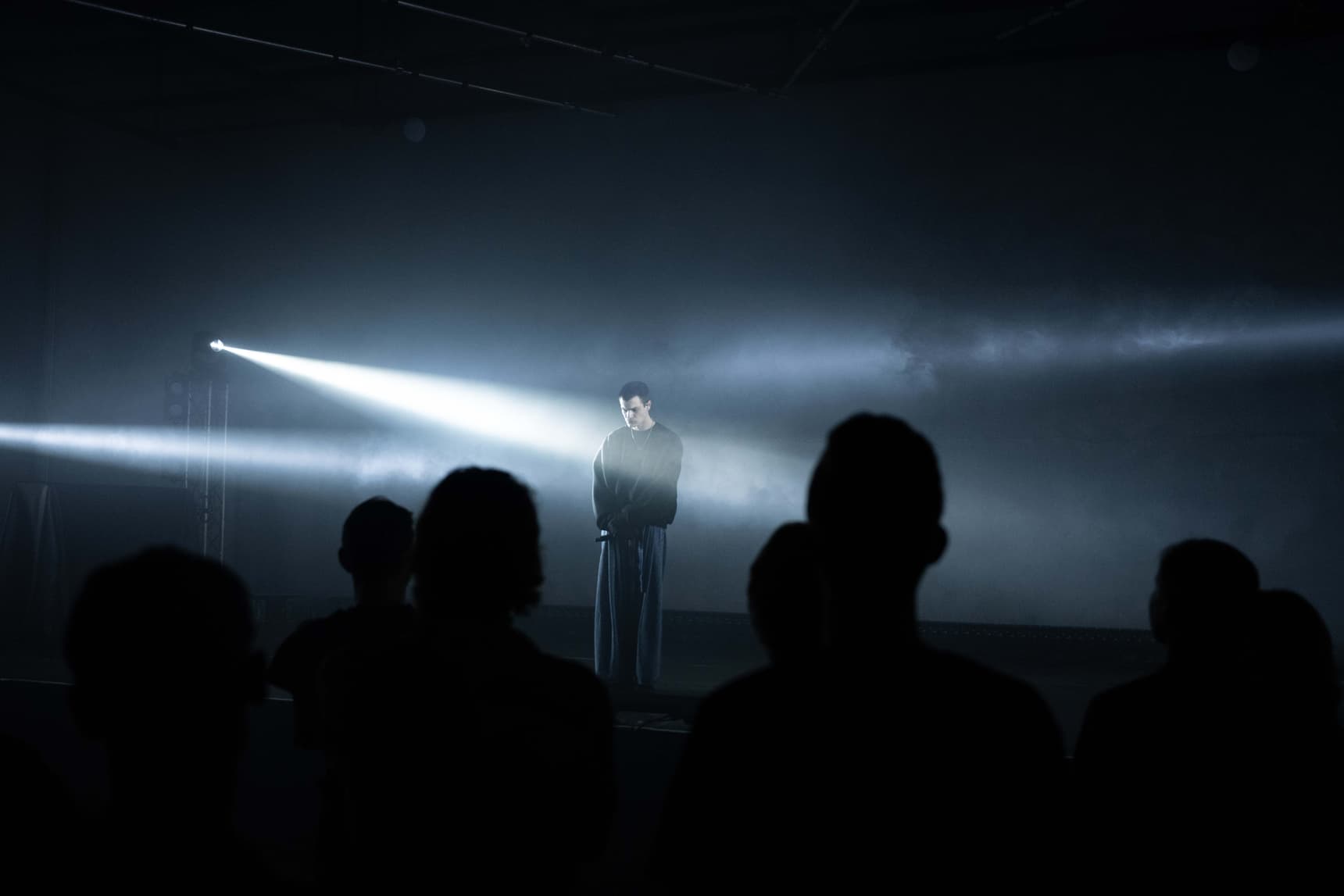
WEDNESDAY
Wednesday awaits with the official reception for the grown-ups of the scene. A free bar and snacks loosen up the serious Germans, and everyone slowly gets into the mood for the first acts. Under Silent Green, there is a huge cellar-level made of concrete tunnels and venues. Günier Künier, a German-Turkish punk act, start the night with some angry and hopeful tunes. I smile because I recognise the singer’s face — we both visited the Patti Smith concert earlier in the summer and seem to share a hero. Günier’s music is unique and powerful, a whole little universe in itself, deep below the garden, the green meadows, and the evening dusk.
Anika plays after them, an emerging edgy German-British artist mixing post-punk with electronic influences.
One concrete hallway away from her, Teresa Rotschopf occupies a long room, imitating the sound of a dripstone cave with her program “The Cave as an Instrument.” All musicians are far apart from each other in the unusual venue; echoes and delays make the listeners fascinated and a little lost. Everyone in the audience is turning their heads like little owls — where to look, where to listen, as sound comes from everywhere. It feels like a meditation mixed with a church service, an art performance and a ton of emotions.
Teresa recorded her upcoming album in a real cave, and when I speak to her on Thursday, she talks about her spark of inspiration: the fixed idea to record in a real cave, and how, as an artist, you have to hold on to the spark and the vision. She leaves me with inspiration and an intensity that only a true artist can give away so effortlessly: “Keep the crazy ideas alive and make them happen, that’s where the magic starts.” What a meeting, what a beautiful sound.
The end of the night features ÄTNA, a German electro-pop duo that invite a string ensemble on stage and mesmerises everyone in the packed and giant underground venue. The concert in the concrete hall is recorded live for the radio, and twice, the singer Inez insists on restarting a song — it has to be “radio-good”! Their songs move somewhere between sexy and soft, party beats and the smooth sounds of a pink morning sky. I lose a friend in the crowd as she’s pulled to the front by the music. I bike home. A hot summer’s day ends, and the breeze of an emerging thunderstorm fills the air.
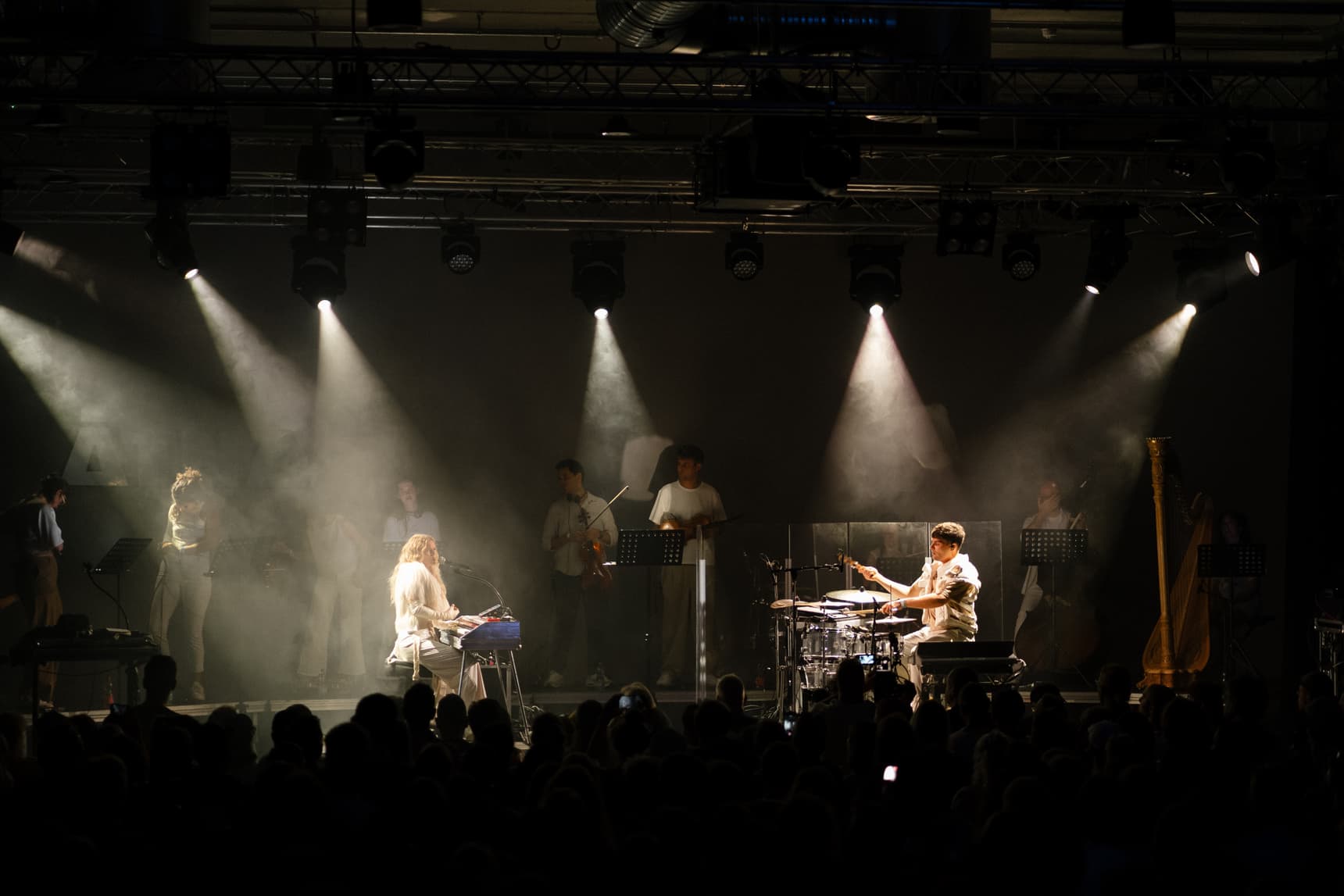
THURSDAY
The next day is rainy; perfect weather for an indoor label market in the heart of Kreuzberg. I like that the festival is spread across town this year; travelling through this huge city calms me down before the wildness of the music industry breaks over me again.
At Festsaal Kreuzberg, labels have set up merch tables. Your turn to purchase some merch or connect with the labels of your dreams in the real world. Nothing is better than a chat, handshake, and leaving a little demo with your beloved potential future partners, so I bring two of my self-released album tapes. After a couple of drinks and befriending a very soft and curly dog, I find the courage to talk to my heroes. Proud of myself, I move to the next venue, where a showcase takes place and the new darlings of the cool indie labels are playing their songs.
What I love about Pop-Kultur is that you’re constantly confronted with sounds outside of your comfort zone, outside of the genres you are familiar with. I am lucky enough to witness Charlotte Colace’s ensemble: the Cuban-French neo-soul singer brought a group to perform some unreleased material sounding like cinematic 60s soul mixed with modern aspects. Smooth and clear at the same time, Charlotte’s incredible voice warms up the whole room. Outside, the rain stops and the night ends peacefully.
When I leave the label market, I meet Teresa Rotschopf on my way out, talking about her experience recording albums in caves. My hands feel itchy; I want to create and turn all my weird little ideas into reality, like this beautiful woman taking her studio to a cave.
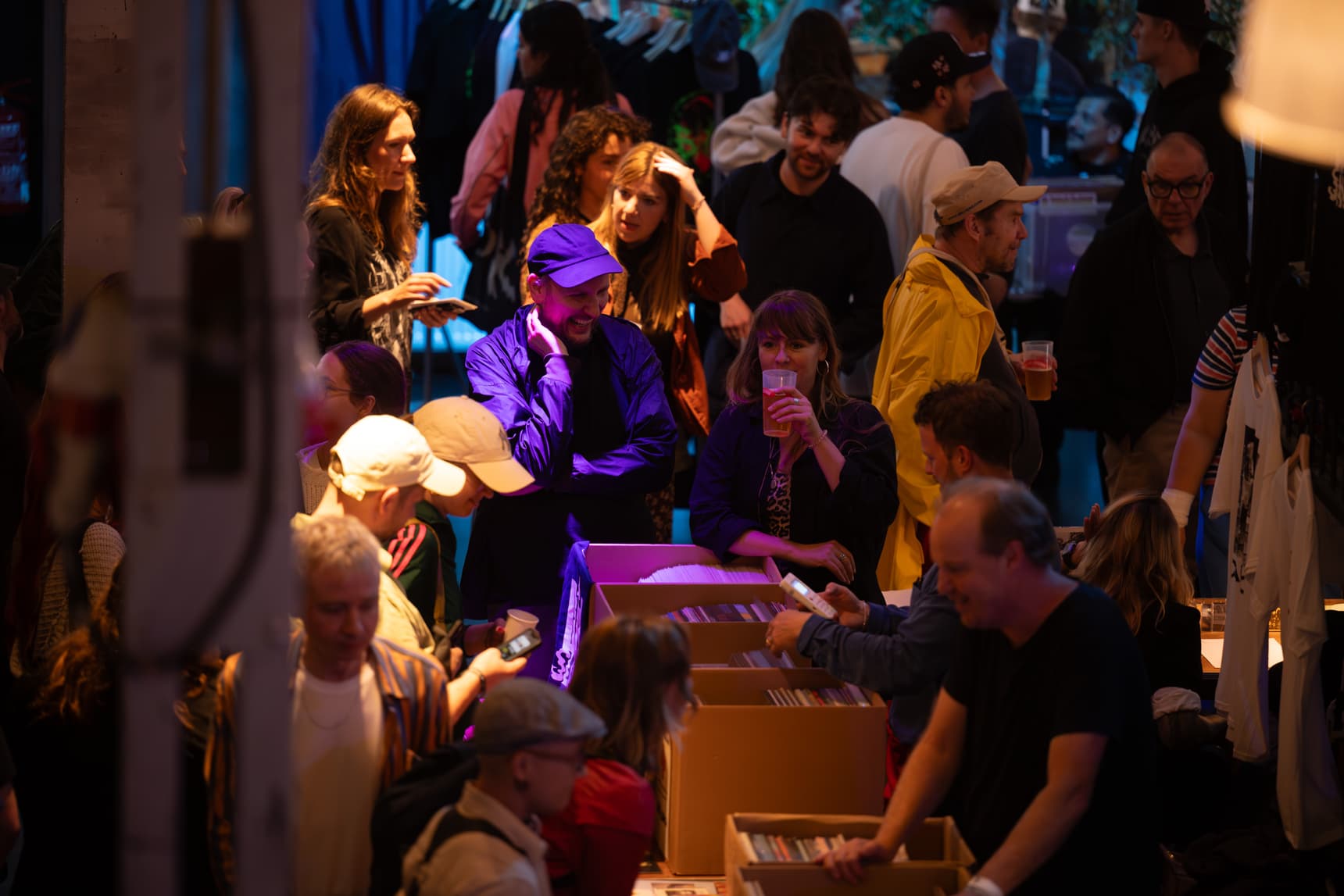
FRIDAY
Now the event moves back to another well-known place in Berlin: Kulturbrauerei, a big complex with many different venues. All kinds of concerts and performances take place at the same time. The focus of this musical Friday seems to be on hip hop.
Tape Visitors from Georgia play at the Frannz Garten, as well as Aircraft (sad and dreamy indie-pop from Ukraine), KOOB (jazz from Belarus), and Becky Sikasa (emotional singer-songwriter from Germany). They are the last traces of the newcomer program, and each performs moving and inspiring sets under open skies.
Kerosin95, a Vienna rapper, performs at the hidden gem PANDA Platform, with sexy beats and honest, provocative lyrics about being trans, life and love.
Eli Preiss, a German pop starlet, warms up the Kesselhaus for the Gen-Z kids. The night ends with APSILON; everyone escalates, and the venue is packed with fans and feelings. APSILON mixes melancholia with politics and softness and manages to sell out Pop-Kultur for the very first time. His gig at the biggest venue of Kulturbrauerei, the Kesselhaus, takes place at the very end of the night, and some sad faces don’t manage to get inside, so they queue outside the venue.
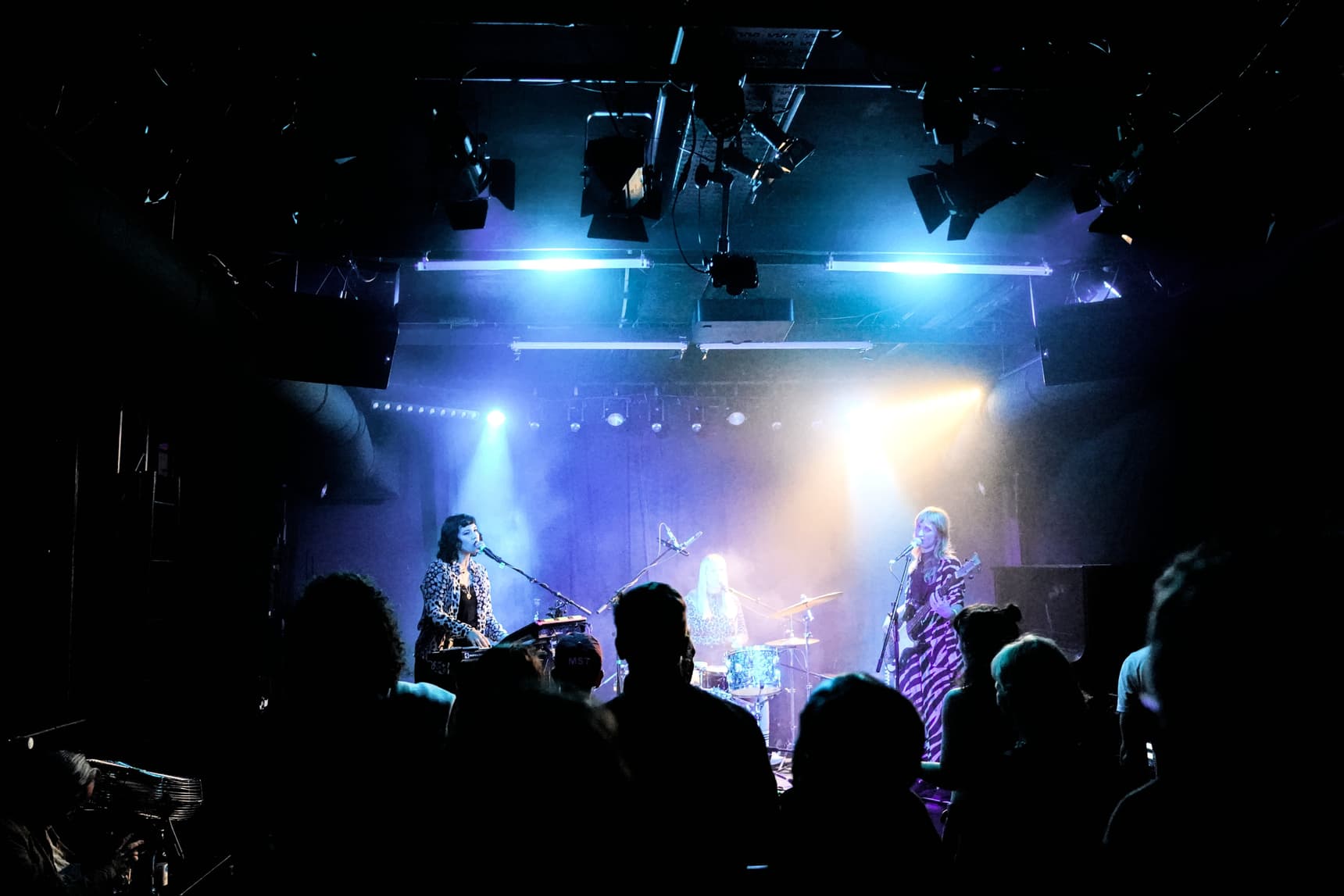
SATURDAY
I arrive at Kulturbrauerei in the early evening light and greet my newly made friends of the week. I bump into Eilish Frawley, a drummer, songwriter, and spoken word artist who plays in one of the last slots of the night and just had her soundcheck. I’m looking forward to her set — a wild and experimental celebration of feminism, anger, love, and her gossiping granny. She feels a little nostalgic; the gig marks the end of touring with her recent album in the current ensemble, and she feels like it’s a celebratory end of something beautiful. But before her set, I visit around ten other acts, and the evening is still young.
I start with Gut Health from Australia. They mix post-punk with dance beats. Singer Athina Uh-Oh dominates the whole stage with her mesmerising energy and vocals, which go from enchantingly clear to powerfully demanding shouting. They sound, look, and feel cool, and the room full of people moves with their experimental punk-y beats. I make my way to Ralph Heidel again, as tonight he plays a set of his own music. How emotional can a tweaked, effects-loaded saxophone get? How do wild synths, a real piano, rap, and jazz fit together so perfectly and build a sum that leaves at least half of the room either hypnotised or emotional? I later buy his vinyl, and while writing about this magical last week, I listen to him on repeat.
The Underground Youth, a British post-punk band from Manchester, play a dreamy, fuzzy, hypnotising set, and the room is way too full — the very best sign at a showcase festival like Pop-Kultur! Meanwhile, in a smaller venue, I stumble upon Tami T, who performs with chords and sound waves. Her performance is a whole mood as she plays nature sounds and dreamy synthesisers. In the courtyard, the Iranian-German singer Faravaz performs. She sings about her experience as a refugee and about defining her way of being a woman in this country, allowing herself to eat cake and ignore beauty standards. Yes, queen. Liv Oddman from France creates another whole universe of sounds, lights and movement. His atmospheric and emotional performance is intense, bold, confident and sensual.
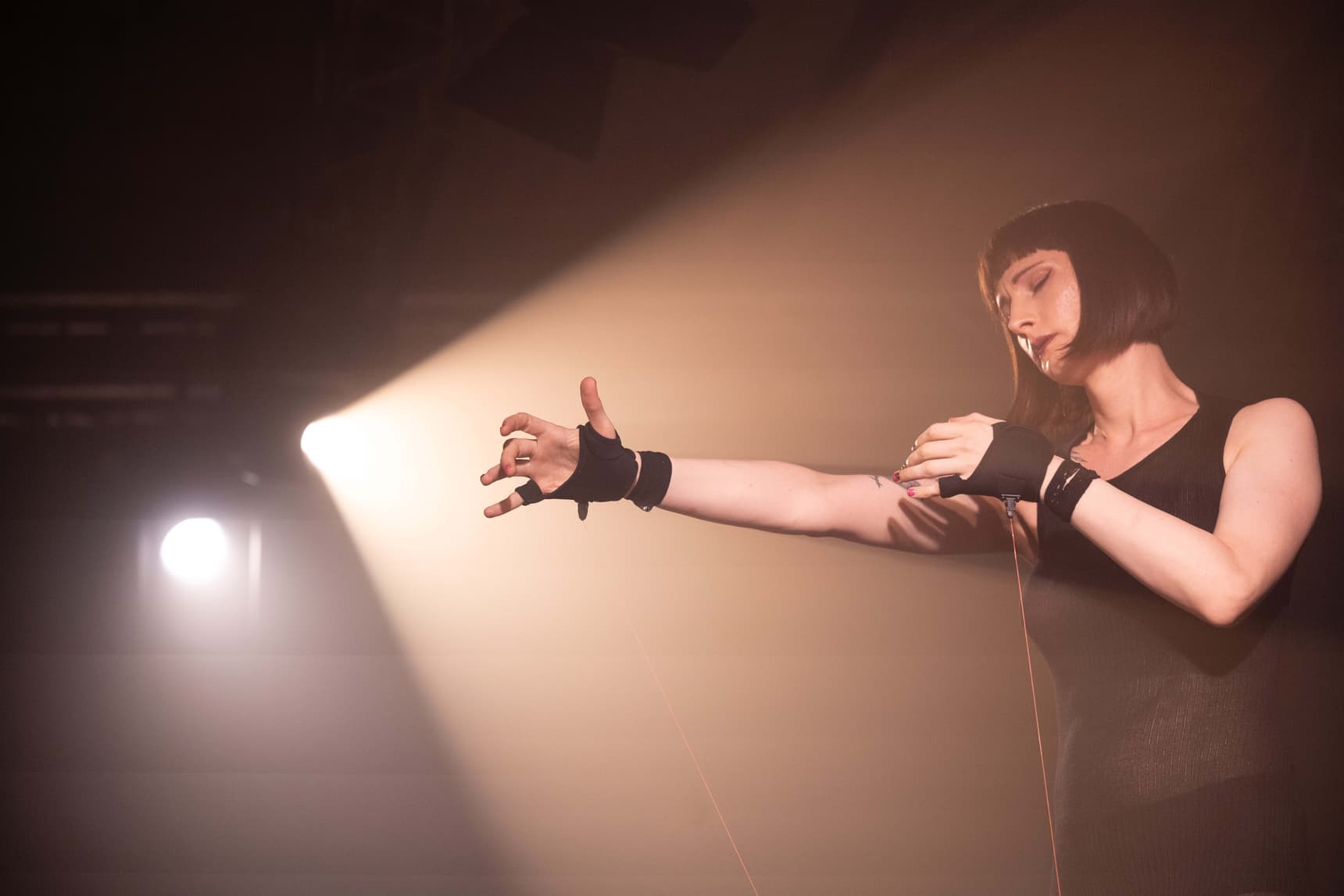
Now Eilish Frawley and Die Nerven are playing at the same time and I try to see both. The first half of the indie-rock-post-punk trio Die Nerven hits me in all the right places. Singer Max Rieger, who is tall, thin, and pale like a very sexy skeleton, shouts, screams, and sings fragile and soft about political topics of recent times. Looking at him feels like watching a very intense, critical, political arthouse movie. Drummer Kevin Kuhn moves through his own world; his facial expressions echo the beat, and relentlessly in time, he holds the energy and room together, while the sad vocals of Max bring a secret tear to my eyes. Meanwhile, the trio of Eilish Frawley creates a raw, honest, edgy, and beautifully weird sound. The three women are focused, and now and then they exchange little smiles. Eilish shouts in her Australian slang about expectations towards women in society. Beautiful, angry, humorous, calming, and wild at the same time.
When I return after watching Eilish Frawley’s concert, witnessing Die Nerven’s ending of their set, Bassist Julian Knoth beats his bass with both hands on the floor with raw raging energy. What a goddamn good concert. If you’re curious about what happens in the German music scene, you know where to look.
I jumped through so many universes and galaxies of the different sides of pop during the last week. I learned so much and explored all these different acts, genres, and styles. What I mostly took away from this unforgettable week is what had been said at the very start: “When you’re carving out your own space in the music industry, there is not one way to do it.” My way has to do with petting dogs when nervous about Label-encounters, crying to post-punk, sampling weird phone recordings and writing about festivals to pay for the next album.













